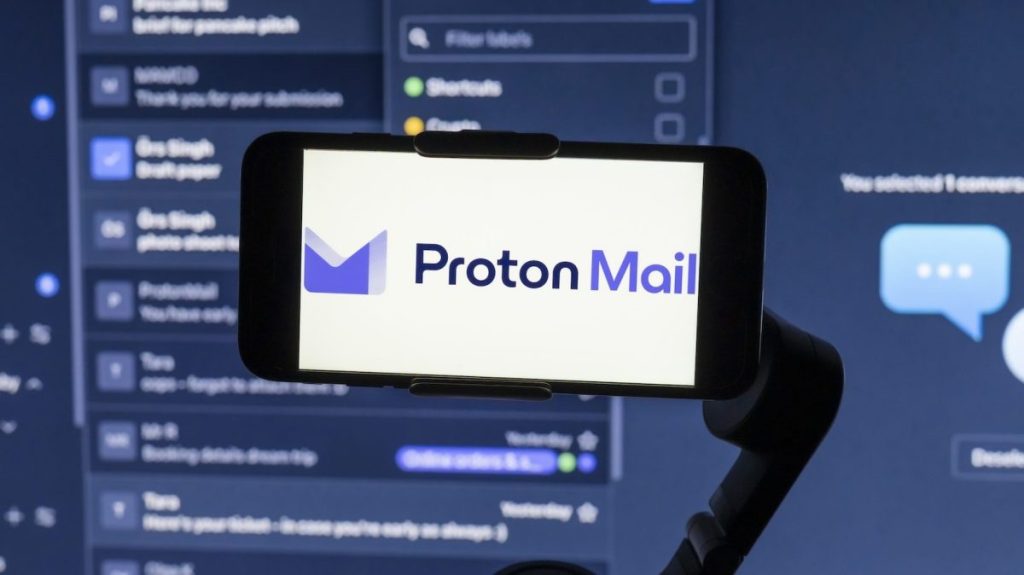Proton Introduces Privacy-Focused AI Writing Assistant

Proton, renowned for its emphasis on privacy, has launched a new AI-driven writing tool called Proton Scribe. This innovative assistant helps users draft, edit, and proofread emails while prioritizing user privacy. Unlike many AI tools, it operates directly on the user’s device. Therefore, sensitive data remains secure and intact, never leaving the local device.
Proton Scribe aims to combine the benefits of AI with robust privacy measures. It stands out because it doesn’t learn from user data, making it a trustworthy option for enterprises worried about data security. Additionally, Proton offers flexibility by allowing the tool to run on either local devices or their servers. This dual approach ensures that it caters to both privacy-conscious users and those who seek performance.
Introduction of Proton Scribe
Proton’s latest innovation, Proton Scribe, is an AI-driven writing assistant designed to assist users in composing, redrafting, and proofreading emails. Unlike many other AI tools, Proton Scribe operates directly on the user’s device to prioritize privacy. This addition underscores Proton’s commitment to creating a suite of privacy-centric applications.
Privacy at the Forefront
Proton Scribe stands out by ensuring that user data remains on the local device, addressing privacy concerns that have made businesses hesitant about embracing generative AI. The tool won’t learn from user data, making it appealing for enterprise use where data security is crucial. Proton’s approach aims to prevent sensitive information from being exposed to third-party AI services, which is a significant step towards more secure AI integration.
Functionality and Features
Users can interact with Proton Scribe by inputting prompts like “request samples from a supplier,” and the assistant quickly generates a relevant email template. While the tool might produce generic responses due to the lack of personal data usage, additional features such as ‘quick actions’ for tone adjustment and proofreading compensate for this limitation. Proton plans to enhance the tool’s contextual capabilities while maintaining its privacy-first approach.
Deployment Options
Proton Scribe offers flexibility in its deployment. Users can opt to run the tool on their local device or on Proton’s servers. Running it locally ensures no data leaves the device, though it might be slower depending on hardware. Server-based usage promises faster performance, with Proton assuring no data retention post email draft creation. This dual deployment strategy caters to different user needs, from high privacy preferences to performance-focused scenarios.
Open Source and Customizable
Built on the Mistral 7B model from French AI startup Mistral, Proton Scribe is released under the open-source GPL-3.0 license. This allows for third-party security audits and customization. Proton’s decision to adopt an open-source model reflects its transparency and dedication to community trust. It also opens doors for further refinement and adaptability by developers focused on privacy and security.
Trade-offs and Limitations
One notable trade-off with Proton Scribe is the generic nature of its responses due to the absence of personalized data. Proton acknowledges this limitation but emphasizes the balance between privacy and personalization. The company is actively working on adding contextual improvements to the assistant in a privacy-preserving manner. These planned enhancements aim to mitigate the generic response issue while keeping user data safe.
Future Integrations and Expansions
Currently, Proton Scribe is limited to email composition within Proton Mail. However, the company is considering expanding its capabilities to other Proton products based on user demand. This could include integrations with their collaborative document editing app, potentially broadening the tool’s utility across different productivity tasks.
Availability and Cost
Proton Scribe is initially available for Proton Mail on the web and desktop, with plans to extend to mobile devices. The service targets business users, priced at an additional $2.99 per month for certain plans. Legacy users on Visionary or Lifetime plans can access it for free, and there may be future expansions to other consumer plans. This pricing strategy aims to make the writing assistant accessible while providing value to regular Proton users.
User Experience and Feedback
Despite its limitations, Proton Scribe offers a significant advancement in privacy-first AI tools. Users can expect improvements in the future as Proton incorporates feedback and refines the assistant. The company’s focus on privacy makes it a compelling choice for users wary of traditional AI tools that compromise data security. Proton’s continuous commitment to enhancing its tools ensures that user experience will be at the forefront of future updates.
Conclusion
Proton Scribe represents a critical step in integrating AI into everyday tools while prioritizing user privacy. Its local deployment, lack of data retention, and open-source model set it apart in the crowded AI market. As Proton continues to refine and expand this tool, it is poised to meet the growing demand for secure and efficient AI applications in business and personal communications.
In conclusion, Proton Scribe offers an important blend of AI utility and privacy protection, setting it apart from many competitors. Its on-device option ensures that sensitive user data remains secure, addressing significant concerns in today’s digital landscape. Despite some limitations like generic responses, the tool’s privacy-first approach makes it a remarkable choice for businesses and individuals alike. As Proton continues to refine this assistant, it’s likely we’ll see even more advanced features that uphold the same rigorous privacy standards.





